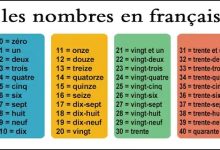الفروقات بين الكلمات المتشابهة في الإنجليزية
تُعد اللغة الإنجليزية من أكثر اللغات انتشارًا وتأثيرًا في العالم، وتتميز بثراء مفرداتها وتنوعها، الأمر الذي يجعل من الضروري فهم الفروقات الدقيقة بين الكلمات المتشابهة في النطق أو الكتابة، ولكنها تختلف في المعنى والاستخدام. فالتفريق بين الكلمات التي تبدو متشابهة هو أساس أساسي لتحسين مهارات الكتابة والتواصل، خاصة في المجالات الأكاديمية، والعملية، والإعلامية، حيث يمكن أن يؤدي الالتباس إلى سوء فهم أو أخطاء فادحة في التعبير. في هذا السياق، يظهر أن العديد من الكلمات الإنجليزية تتشابه في اللفظ أو التهجئة، ولكنها تختلف تمامًا في المعنى، ولهذا فإن إتقان استخدامها بشكل صحيح يُعد أحد الركائز الأساسية للتمكن من اللغة بشكل متقن وفعال.
التمييز بين الكلمات ذات التشابه الصوتي والكتابي
تحتوي اللغة الإنجليزية على عدد كبير من الكلمات التي تتشابه في نطقها أو كتابتها، ولكنها تختلف في المعنى تمامًا، وهو ما يُطلق عليه عادةً “الكلمات المتشابهة” (Homophones) أو “المتشابهات في التهجئة” (Homographs). فهم هذه الفروقات يتطلب دراسة دقيقة، فكل كلمة من تلك الكلمات لها سياق معين يُحدد المعنى المقصود ويُجنب سوء الفهم أو الأخطاء الشائعة التي قد تقع فيها غير المتمرسين أو غير المدققين في النصوص.
الكلمات المتشابهة في النطق ولكنها تختلف في المعنى
من الأمثلة البارزة على ذلك، كلمات مثل Accept و Except، فالأولى تعني “يقبل” أو “يوافق على شيء معين”، بينما الثانية تعني “باستثناء” أو “ما عدا”. على سبيل المثال، عند قول “She accepted the invitation”، فإننا نُعبر عن قبول الدعوة، بينما في جملة “Everyone was invited except John”، نُوضح أن جون لم يكن من المدعوين. فهم الفرق بين هاتين الكلمتين يُعد أساسياً لتوصيل المعنى بشكل دقيق، خاصة في الكتابة الرسمية أو المحادثات التي تتطلب دقة في التعبير.
الكلمات ذات التشابه في التهجئة ولكنها تختلف في المعنى
أما بالنسبة للكلمات التي تتشابه في التهجئة ولكن تختلف في المعنى، فهي تتطلب فهمًا دقيقًا للسياق الذي تُستخدم فيه. على سبيل المثال، كلمة Principal و Principle. فالأول يشير إلى شخص ذو منصب قيادي، مثل مدير المدرسة، أو إلى المبلغ الرئيسي من المال، بينما الثاني يُعبر عن مبدأ أو قانون أساسي يُبنى عليه شيء معين. على سبيل المثال، “The principal of the school announced new policies” تعني أن المدير أعلن عن سياسات جديدة، أما “Honesty is a fundamental principle” فتعبر عن مبدأ أساسي في الأخلاق.
تحليل مفصل لبعض الكلمات المتشابهة مع أمثلة عملية
Accept vs. Except
في الاستخدام اليومي، يُعد الفرق بين هاتين الكلمتين واضحًا، ولكنه قد يُنسى أو يُخلط عند الكتابة أو التحدث. كلمة Accept تأتي من الفعل “to accept”، وتُستخدم عندما نقبل شيئًا سواء كان عرضًا أو دعوة أو هدية. مثلاً، “He accepted the scholarship” أي أنه قبل المنحة الدراسية. أما Except فهي ظرف أو حرف جر يُستخدم لاستثناء شيء معين من مجموعة، فتقول “Everyone was present except the manager”، بمعنى أن المدير هو الشخص الوحيد الذي لم يحضر.
ملاحظات تطبيقية
- عند كتابة رسالة رسمية تتعلق بالموافقة على عرض أو قبول دعوة، استخدم كلمة accept.
- عند صياغة جملة تتعلق باستثناء شخص أو شيء، استخدم كلمة except.
Affect vs. Effect
هذه الكلمات تُعد من أكثر التشابهات شيوعًا في اللغة الإنجليزية، ويجب فهم الفرق بينهما بشكل دقيق. كلمة Affect، كفعل، تعني “يؤثر على شيء ما” أو “يُحدث تغيّرًا”، وتُستخدم عندما نريد أن نوضح أن شيئًا معينًا له تأثير على شيء آخر، مثل “The weather can affect your mood”، أي أن الطقس يمكن أن يؤثر على مزاجك. أما Effect، فهي اسم، وتُعبر عن النتيجة أو الأثر الناتج عن فعل معين، فمثلاً، “The effect of the new law was immediately noticeable”، أي أن تأثير القانون الجديد كان واضحًا على الفور.
نصائح لتذكر الفرق
- يمكن تذكر أن Affect يبدأ بحرف “A” وهو فعل، بينما Effect يبدأ بحرف “E” وهو اسم.
- عند الحديث عن النتائج أو الآثار، استخدم effect.
- عند الحديث عن التأثير أو التأثيرات المباشرة، استخدم affect.
Complement vs. Compliment
هذه الكلمات تُستخدم بشكل متكرر، ويجب فهم الفرق بينهما لضمان التعبير الصحيح. Complement يشير إلى شيء يُكمل أو يُتمم شيئًا آخر، مثلاً، “The red wine was a perfect complement to the meal”، أي أن النبيذ الأحمر كان مكملًا للوجبة بشكل مثالي. أما Compliment، فهو عبارة عن إطراء أو مدح، مثل “She received many compliments on her dress”، أي أنها تلقت العديد من المجاملات على فستانها.
ملاحظات مهمة
- كلمة complement غالبًا ما تُستخدم في السياقات التي تتعلق بالتنسيق أو التوافق، سواء في الطعام أو الألوان أو الأزياء.
- كلمة compliment تُستخدم عند الحديث عن المدح أو الإطراء، سواء في المجاملات الشخصية أو الرسمية.
قواعد الاستخدام الصحيحة للمفردات ذات التشابه في الملكية والضمائر
التمييز بين their، they’re، و there هو من أساسيات اللغة الإنجليزية. فهم الاستخدام الصحيح لهذه الكلمات يُجنب الالتباس ويُعزز دقة التعبير. Their هو ضمير يُستخدم للدلالة على ملكية مجموعة أو شخص، مثل “It’s their house”، أي منزلهم. They’re هو اختصار لـ “they are”، ويُستخدم في الجمل التي تتضمن الحالة أو الفعل، مثل “They’re going to the movies”، بمعنى أنهم ذاهبون إلى السينما. أما there فهي تشير إلى مكان أو موقع، مثل “The keys are over there”، أي أن المفاتيح موجودة هناك على الطاولة.
ملاحظة مهمة
- للتذكير، their يدل على الملكية، they’re هو الاختصار لـ “هم”، و there يشير إلى مكان.
الأخطاء الشائعة بين المفردات الأخرى وكيفية تجنبها
Your vs. You’re
هذه من أكثر الأخطاء شيوعًا بين متعلمي اللغة الإنجليزية، ويجب فهم الفرق بشكل جيد. Your يُستخدم للدلالة على الملكية، كمثال “Is this your book؟”، أي هل هذا كتابك. أما You’re فهو اختصار لـ “you are”، ويُستخدم في الجمل التي تتضمن حالة أو فعل، مثل “You’re a great singer”، أي أنت مغنٍ رائع. الالتزام باستخدامهما بشكل صحيح يضمن وضوح المعنى ويُجنب اللبس.
Its vs. It’s
هذه الكلمات تتطلب انتباهًا خاصًا، حيث أن Its يدل على ملكية شيء غير بشري، مثل “The cat chased its tail”، أي أن ذيل القطة هو ملكه. أما It’s فهو اختصار لـ “it is” أو “it has”، مثل “It’s a beautiful day”، أي إنه يوم جميل. فهم الاستخدام الصحيح يساهم في تجنب الأخطاء النحوية ويُحسن من دقة النص.
تقنيات وتطبيقات عملية لفهم الكلمات المتشابهة
لتجاوز صعوبة التمييز بين الكلمات المتشابهة، يُنصح باتباع بعض التقنيات العملية التي تساعد على ترسيخ الفهم وتحسين الممارسة. من بين هذه التقنيات، استخدام جداول المقارنة التي توضح الفروقات بين الكلمات بشكل واضح، وإنشاء جمل تفاعلية تتطلب اختيار الكلمة الصحيحة من بين عدة خيارات، والقراءة المستمرة لمصادر موثوقة، بالإضافة إلى الاستماع المستمر للمحادثات والنصوص الصوتية التي تُعزز الفهم السمعي وتُساعد على الربط بين المعنى والسياق.
جدول مقارنة بين الكلمات المتشابهة
| الكلمة | النوع | المعنى | مثال توضيحي |
|---|---|---|---|
| Accept | فعل | يقبل أو يوافق على شيء | She accepted the offer. |
| Except | حرف جر / ظرف | باستثناء | Everyone attended except John. |
| Affect | فعل | يؤثر على شيء | The weather affects my mood. |
| Effect | اسم | النتيجة أو الأثر | The effect was immediate. |
| Complement | اسم / فعل | يكمل أو يُتمم | The wine complements the meal. |
| Compliment | اسم / فعل | مدح أو إطراء | She received many compliments. |
| Principal | اسم / صفة | الشخص ذو المنصب أو المبلغ الرئيسي | The principal of the school is retiring. |
| Principle | اسم | مبدأ أو قانون أساسي | Honesty is a fundamental principle. |
| Their | ضمير ملكية | ملك لهم | It’s their house. |
| They’re | اختصار لـ “they are” | هم | They’re going to the park. |
| There | ظرف مكان | هناك أو في مكان معين | The keys are over there. |
| Your | ضمير ملكية | ملك لك | Is this your pen? |
| You’re | اختصار لـ “you are” | أنت / أنتم | You’re very kind. |
| Its | ضمير ملكية | ملكي لشيء غير بشري | The dog chased its tail. |
| It’s | اختصار لـ “it is” أو “it has” | هو / إنها | It’s raining outside. |
مبادئ أساسية في تعلم استخدام الكلمات المتشابهة
تُعد القدرة على تمييز واستخدام الكلمات المتشابهة بشكل صحيح من أهم مهارات الكتابة والتحدث باللغة الإنجليزية. لتحقيق ذلك، يُنصح باتباع بعض المبادئ الأساسية التي تساعد على ترسيخ المفاهيم وتجنب الأخطاء الشائعة، منها:
- التدريب المستمر: من خلال ممارسة التمارين التي تتطلب اختيار الكلمة الصحيحة في سياقات مختلفة، سواء عبر البرامج التعليمية أو التطبيقات التفاعلية.
- القراءة المكثفة: قراءة النصوص المختلفة، سواء أدبية أو علمية، تتيح التعرف على كيفية استخدام الكلمات في سياقات متنوعة، مما يعزز الفهم والتذكر.
- الكتابة المتكررة: كتابة مقالات، أو مذكرات، أو رسائل يتطلب استخدام الكلمات بشكل دقيق، مع مراجعة وتصحيح الأخطاء.
- الاستماع والتحدث: الاستماع إلى محادثات، أو برامج إذاعية، أو محاضرات، وممارسة التحدث لتثبيت النطق الصحيح والفهم السليم للسياق.
طرق تعزيز الفهم والتطبيق العملي للكلمات المتشابهة
لتحقيق مستوى عالٍ من الإتقان في استخدام الكلمات المتشابهة، يمكن الاعتماد على مجموعة من الطرق العملية التي تدمج بين الدراسة النظرية والتطبيق العملي، ومن بينها:
استخدام تطبيقات وبرامج تعليمية متخصصة
الاستفادة من تطبيقات مثل Duolingo، وMemrise، وQuizlet، التي توفر تمارين تفاعلية تركز على التمييز بين الكلمات المتشابهة، من خلال أنشطة مطابقة، واختبارات قصيرة، وألعاب تعليمية. هذه الأدوات تساعد على تثبيت المفهوم بشكل فعال من خلال التكرار والتفاعل المستمر.
القراءة والكتابة المنتظمة
قراءة الكتب، المقالات، والمجلات باللغة الإنجليزية، مع التركيز على الكلمات المتشابهة في النص، ثم محاولة كتابة جمل ونصوص تتضمن تلك الكلمات، مع مراجعة النصوص وتصحيحها. يمكن أيضًا استخدام القواميس والمراجع الإلكترونية لتأكيد المعاني وتصحيح الاستخدام.
المشاركة في ورش العمل والدورات التدريبية
الانضمام إلى دورات تعليمية أو ورش عمل تركز على تحسين مهارات اللغة الإنجليزية، خاصة تلك التي تتناول موضوعات القواعد، والمفردات، والكلمات المتشابهة، مع تطبيقات عملية وتمارين تفاعلية من قبل المختصين.
التمارين التفاعلية والاختبارات الذاتية
تصميم أو الاعتماد على اختبارات ذاتية عبر الإنترنت لاختبار مدى فهمك للمفردات، مع تكرارها بشكل دوري لضمان ترسيخ المعلومات. كما يمكن إعداد بطاقات فلاش تحتوي على الكلمة ومعناها وسياق استخدامها، واستخدامها بشكل يومي.
أهمية السياق في فهم الكلمات المتشابهة
السياق هو العامل الحاسم في تحديد المعنى الصحيح للكلمة، خاصة عند وجود كلمات متشابهة في النطق أو التهجئة. لذلك، يُنصح دائمًا بقراءة النصوص بشكل كامل، والانتباه إلى الجملة التي تحتوي على الكلمة، وتفسيرها ضمن سياقها. على سبيل المثال، كلمة Principal في جملة “The principal idea is clear” تعني الفكرة الأساسية، أما في جملة “The principal of the school is retiring” فهي تشير إلى المدير.
الاستفادة من أدوات التصحيح والنحو
استخدام أدوات مثل Grammarly، وLanguageTool، وMicrosoft Editor، التي تساعد على تصحيح الأخطاء اللغوية والنحوية، وتقديم اقتراحات لتحسين استخدام الكلمات، خاصة تلك التي تتشابه في الشكل أو الصوت.
خاتمة: أهمية التمرن المستمر وإتقان المفردات
إن إتقان استخدام الكلمات المتشابهة في اللغة الإنجليزية يتطلب جهدًا مستمرًا، وممارسة دائمة، ووعيًا دقيقًا بالسياق. فكلما زادت معرفتك بالمفردات، وتدربت على تطبيقها بشكل صحيح، زادت قدرتك على التواصل بفعالية ودقة، سواء في الكتابة أو التحدث. تُعد هذه المهارة أحد أهم عناصر الإتقان اللغوي، حيث تساهم بشكل كبير في تحسين مستوى الفهم، وتقليل الأخطاء، وتعزيز الثقة في التعبير عن الأفكار والمشاعر بشكل واضح ومؤثر.
وفي النهاية، يُنصح بالاستفادة من المصادر الموثوقة، مثل كتب القواعد، والمراجع الإلكترونية، والدورات التعليمية، والممارسة اليومية، لضمان ترسيخ المفاهيم، وتحقيق التقدم المستمر. فاللغة ليست مجرد مجموعة من الكلمات، وإنما هي أداة فعالة للتواصل، وفهم الآخر، وبناء جسور من التفاهم بين الثقافات والأفراد. لذا، فإن الاستثمار في تعلم الكلمات المتشابهة واستخدامها بشكل صحيح هو استثمار في مهاراتك اللغوية، ومفتاح لنجاحك في مختلف مجالات الحياة.





